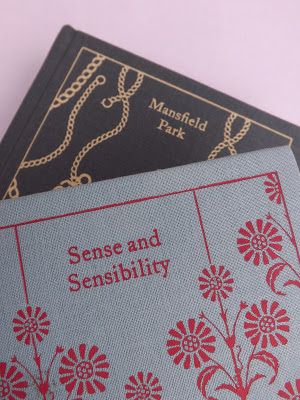Whenever a new biography of Jane Austen comes along I'm on it like a car bonnet! Particularly if it illuminates aspects of the novels I'd not thought about before. Paula Byrne's The Real Jane Austen - A Life in Small Things has some very intriguing interpretations of Mansfield Park.
Byrne's theory that Tom Bertram, eldest son and heir, who is not romantically interested in women, or marriage and is fond of theatricals may be homosexual is not conclusive, but it is an interesting interpretation and of course, if he never has children Fanny and Edmund may inherit Mansfield Park.
The suggestion that Mrs Norris is a kleptomaniac because of her eagerness to whisk away the green baize curtain to her own cottage is backed up by the well-documented scandal in Austen's own family where her aunt, the wealthy Mrs Leigh-Perrot allegedly stole a card of lace from a millinery shop in Bath and faced jail, deportation or the gallows.
I knew the business with the locking and unlocking of gates at Sotherton was sexual imagery but I'd never before thought that Maria's stepping outside of the cultivated garden into the wilderness with Henry Crawford foreshadows her own 'ruin' when he seduces her.
This book has made me want to to re-read Mansfield Park and that is the best recommendation for any new biography of Jane Austen.
By the way, there is some very amusing and perceptive Austen criticism on the wonderful Bitch in a Bonnet blog.






